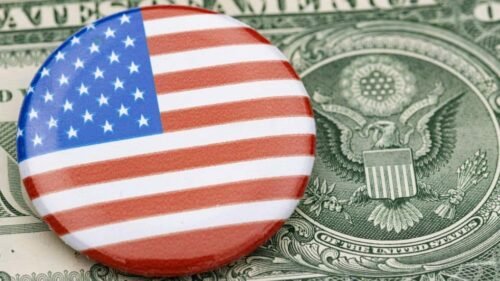In 2016, I was working in Kampala when Donald Trump was elected president. The next morning, my Ugandan Military Intelligence colleagues, in a good-natured moment of painful wit, immediately offered me “political asylum.” When Trump was re-elected nine months ago, I was staying at the Hôtel Métropole in Hanoi, where Graham Greene had savored fine French wine amidst grenade attacks by the Vietminh and wandered off to smoke opium, a jaded Cassandra, as he was preparing The Quiet American, the definitive novel about the tragedy of American self-delusion.
Some of the Americans at the hotel were pleased that Trump would now “Make America Great Again.” Alas, the ghost of Greene remained as perceptive in November 2024 as he was in 1953: America and the world are in for what may well prove four harmful, epoch-changing years under the most delusional president in American history.
International organizations and agreements are passé
In Trump’s view, every other country in the world has taken advantage of weak American leaders, and every international organization only serves to fetter American freedom, power and wealth. Trump derides even America’s post-war network of alliances, which have been the centerpiece of American foreign policy since 1945, multinational institutions such as the United Nations and agreements such as the Trans-Pacific Partnership and the Paris Agreement on climate change as venues for “weak,” or simply non-American, states to take advantage of the US.
Since entering the White House, Trump has proceeded to launch an avalanche of tariffs on trading partners, including close allies. Some of them, like the UK, the EU and Japan, have concluded deals with the US over a barrel. Trump has also weakened longstanding alliances such as NATO and made the World Trade Organization (WTO) irrelevant. Trump approaches all issues as zero-sum transactions and always prefers to negotiate bilaterally, not multilaterally.
As an isolationist, Trump dislikes treaty and alliance commitments: He is far less likely than his predecessors to honor US security commitments to NATO, Japan, South Korea or Australia. It is yet unclear how Trump will respond to China’s increasingly strong and aggressive military and diplomatic postures against Taiwan. Bluster and threats are certain; more than that, doubtful.
Effects on international order
The results of this isolationist, antagonistic, unilateral, single-solution and simple-minded approach to international relations will be a rise in global protectionism and the decay of international organizations: Costs will rise in the US and worldwide; growth will slow or reverse; stock markets could well tumble in alarm; international cooperation will decline.
The normative, rules-based international system is likely, finally, to tear apart under four years of sustained hostility from Trump’s US, its hitherto champion. The US will remain the most influential nation on earth no matter what Trump does, but already we are living in the progressive establishment of a multipolar world of competing great powers.
Trump’s isolationism and weakening of the normative alliances and multilateral institutions could well enable Russia, for all its weaknesses and woes, to assert the great power sphere of influence it has long sought in its “near abroad” of Eastern and Central Europe.
China, already one of the world’s two most powerful nations, will consolidate its preponderance in Asia and the Western Pacific, establishing its own, heavily bilateral, Middle Kingdom style of normative rules and institutions, a haughty Asian and Western Pacific imperium. The world’s weaker nations will leverage China and Russia to negotiate better bilateral deals with the rich “West,” i.e., the US, while acting as a free rider to what remains of the American-led normative system.
Regional powers, such as Turkey and Saudi Arabia, will more aggressively pursue their own unilateral interests and expand their influence in an ever-chaotic Middle East and beyond. Some of the world’s weaker and poorer nations may welcome Trump’s disregard for international norms concerning human rights and democracy, but all will lament the imperfect but real protections that the normative system still provides smaller states.
All these trends have been emerging since the millennium; Trump’s policies will accelerate them, whatever bilateral deals he may cut: Might will make right more than any time since 1945. International relations will become nastier and more brutal.
Domestic division will weaken America
Like any malignant narcissist, Donald Trump’s only interest is whatever action or statement will seem to enhance attention on himself. He has almost no set principles or views on public policy. He has, however, aggressively adopted conservative social and economic Republican positions on domestic policy, because the Republicans are his base of power. His domestic agenda, therefore, is clear, stark and grotesquely self-contradictory. This agenda will inevitably weaken America.
Trump centered his campaign and derives much of his appeal from the problem of illegal immigration. Trump has pledged “to declare a national emergency and will use military assets to reverse the Biden invasion through a mass deportation program,” of millions of illegal immigrants.
Trump and his advisors have spoken of creating mass detention camps. Deportation will help address, in Trump’s view, the economic and social stresses on America’s working class and will remove non-whites from America. In fact, it is America’s immigration — legal and illegal, professional and untrained — that for years has provided the labor force that has helped enable much of America’s strong economic performance. Trump’s brutal crackdown on immigration is already weakening the economy.
Trump and Republicans also have pledged to cut taxes, reduce the budget deficit and reduce regulations, which in their view hinder economic growth. The tax cuts that he has pressured Congress to pass will add more than four trillion to the government’s deficit. Trump’s first-term tax cuts added 40% — over eight trillion dollars — to the national debt, while giving 83% of the tax cuts to the wealthiest 1% of US households, who already hold between 30-40% of all US wealth. Inequality weakens social cohesion, and America will prove to be no exception.
The cure-all tariffs Trump promises will amount to an inflation-causing national sales tax and will raise every consumer’s cost of living $1,700 per year, while depressing overall economic growth. Any student of economics learns that it is domestic consumers who pay for tariffs, not foreign producers (tariffs promote more, but less efficient, domestic production and depress foreign production).
“Preparations are underway to slash massive numbers of job-killing regulations — eliminating ten old regulations for every new one,” Trump has said. This is a longstanding Republican and businessmen’s bugaboo. The real issue, of course, is not regulation but trade-offs: Which is better, less restrictive air pollution requirements for factories, or less harm to public health from pollution? Desirable or not, deregulation is a gargantuan task, and any change should be slow and incremental. Instead, Trump’s Mad Max approach is rash, damaging and self-destructive.
Trump will pursue this nativist, protectionist, isolationist agenda while insulting anyone who does not fawn over him. US politics will become even more divided and paralyzed. Social cohesion will continue to corrode. Objective truth will continue to dissolve in a torrent of “alternative facts.” Faith in public institutions and democracy itself will continue to erode. Amidst the chaos, however, we will hear over and over how Trump is “making America great again.”
The wine at the Hôtel Métropole the day after the US election was a little light for my taste, yet gentle and still round. Was it elegiac, a toast to the failed dreams of the idealistic Americans who preceded me there? Or was it a pledge to continue fighting truly to “make America great again?”
[Newsweek Japan first published a version of this piece.]
[Kaitlyn Diana edited this piece.]
The views expressed in this article are the author’s own and do not necessarily reflect Fair Observer’s editorial policy.
Support Fair Observer
We rely on your support for our independence, diversity and quality.
For more than 10 years, Fair Observer has been free, fair and independent. No billionaire owns us, no advertisers control us. We are a reader-supported nonprofit. Unlike many other publications, we keep our content free for readers regardless of where they live or whether they can afford to pay. We have no paywalls and no ads.
In the post-truth era of fake news, echo chambers and filter bubbles, we publish a plurality of perspectives from around the world. Anyone can publish with us, but everyone goes through a rigorous editorial process. So, you get fact-checked, well-reasoned content instead of noise.
We publish 3,000+ voices from 90+ countries. We also conduct education and training programs
on subjects ranging from digital media and journalism to writing and critical thinking. This
doesn’t come cheap. Servers, editors, trainers and web developers cost
money.
Please consider supporting us on a regular basis as a recurring donor or a
sustaining member.
Will you support FO’s journalism?
We rely on your support for our independence, diversity and quality.








Comment